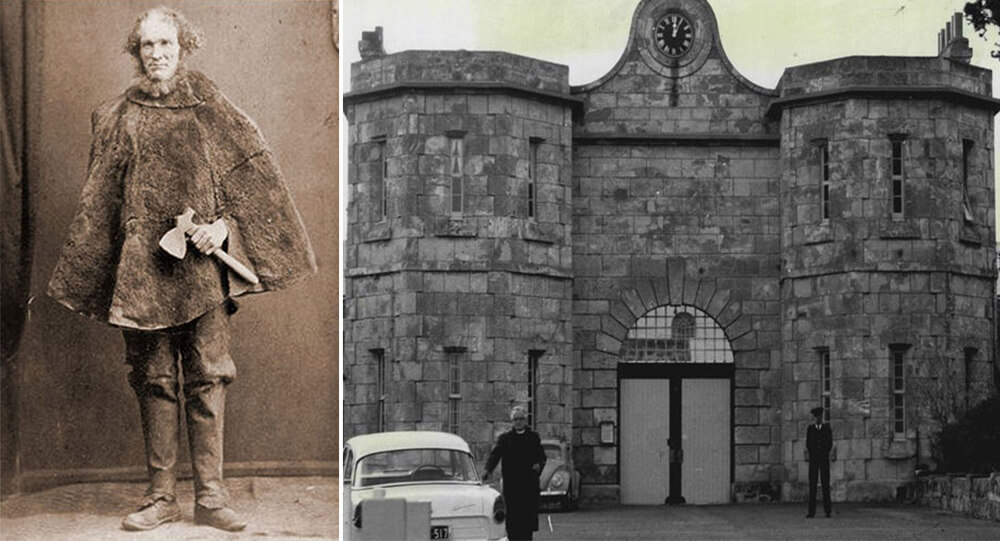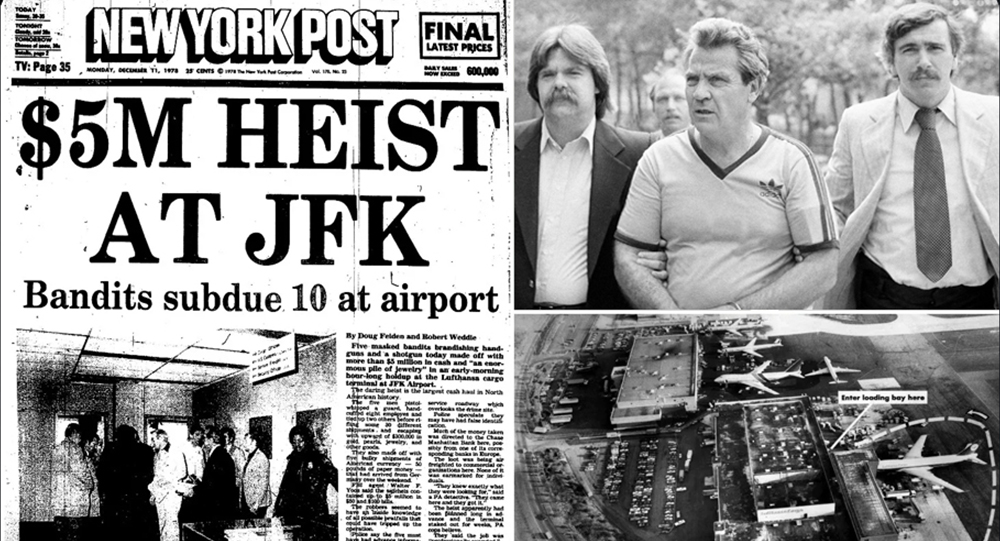
Dan Wieden didn’t want to enter the advertising industry like his father did when he was a young man. In 2003, Mr. Wieden told Adweek magazine, “I could never understand why he was in such a whorish industry.
He majored in journalism at the University of Oregon in the middle of the 1960s. In his early 20s, he married and had children. Due to the need for consistent income, advertising was created. He became fascinated by the challenge of expressing complex ideas in few words. He helped David Kennedy found the Portland, Oregon-based advertising firm Wieden+Kennedy in 1982.
At the time, Nike Inc. was their only customer. It fit like a glove. Nike co-founder Phil Knight detested traditional advertising. The founders of the new agency tended to pitch ads that were unconventional, edgy, and creative. Nike’s slogan, “Just Do It,” was created by Mr. Wieden in 1988.
In the 2009 film “Art & Copy,” Mr. Wieden claimed that Gary Gilmore’s remark, “Let’s do it,” shortly before his execution in 1977 was a major inspiration for the idea. Mr. Wieden recalled thinking, “I like the ‘do it’ part of it.” Nike representatives did not respond to requests for comment. A spokeswoman for Wieden+Kennedy declined to comment.
The Nike advertisements helped turn a small local business into a major advertising agency. In 1991, Subaru of America hired Wieden+Kennedy. Since that time, a long list of clients has included Coca-Cola Co., McDonald’s Corp., Starbucks Corp., and Microsoft Corp. The company employs about 1,500 people and has locations in the Americas, Asia, and Europe.
Mr. Wieden established a trust to protect the company’s independence so that it wouldn’t run the risk of being absorbed by a sizable holding company.
On September 30, Mr. Wieden passed away in his Portland home. He was 77 years old and had Alzheimer’s. Mr. Kennedy, his partner, passed away a year ago at the age of 82.
Mr. Wieden (pronounced why-den) credited the company’s success in part to a hiring practice that favors outcasts and oddballs over seasoned advertising professionals. He stated, “I think people need to feel safe but still under pressure in some strange way, a healthy pressure when it comes to managing people. People must sense your support for their success.
He cautioned advertising professionals against becoming complacent, telling them to “walk in stupid every morning.” He stated that the moment one stops learning and questioning and begins to believe in their own wisdom, they will die.
According to Bill Davenport, a longtime colleague, Messrs. Wieden and Kennedy “didn’t really dictate or mandate.” They allowed people to find their own way. It was a sink-or-swim culture in some ways. However, they never used a strong hand.
Dan Gordon Wieden was raised in Portland where he was born on March 6, 1945. Francis “Duke” Wieden, his father, served as the company’s president.
The younger Mr. Wieden worked for Georgia-Pacific Corporation as a writer of marketing materials after earning his degree from the University of Oregon in 1967. He detested his job and, according to his own admission, caused so much trouble that he was ultimately let go. He attempted writing for hire before joining the McCann-Erickson advertising agency. He met Mr. Kennedy there, whose artistic abilities and sense of humor enhanced Mr. Wieden’s writing abilities.
They initially had a card table and cardboard filing cabinets in their office. They made client calls on a pay phone.
The company made a statement by promoting Honda scooters with a collage of New York City street scenes that featured Lou Reed and his song “Walk on the Wild Side.” Later on, in a Nike advertisement, Wieden+Kennedy combined the talented athlete Bo Jackson with Bo Diddley.
Bonnie Scott Wieden, Mr. Wieden’s first wife, passed away in 2008. In 2012, he wed Priscilla Bernard. Along with four children, six grandchildren, a brother, and a sister, she survives him.

True Story: Russian Pilots Held by Taliban Fought Back and Flew to Freedom
A Russian cargo plane was captured by the Taliban in Afghanistan with Seven crew members aboard. After being held captive in Kandahar for over a year, the crewmen were able to overpower their captors, retake their plane and fly it out of Afghanistan to safety.

The great robbery: 300 million yen robbery
In 1968, a car driven by bank employees was pulled over by a motorcycle cop claiming the car had been rigged with a bomb. The cop got under the car to “defuse” the device. When the car started to smoke, everybody ran. Then the “cop” just drove the car away. The 300M Yen robbery remains unsolved

Woman found guilty of murdering her husband after a parrot repeated the victim's 'last words'
In 2017, a woman named Glenna Duram shot her husband five times before attempting suicide. Soon after, the couple’s pet African Grey parrot, the only witness to the crime, started repeating the words “don’t f*****g shoot!” It is thought to have been the pair’s last exchange. Duram survived and was found guilty of first-degree murder.

The Bizarre Courtroom Act of Serial Killer Rodney Alcala: When a Killer Played Lawyer
Serial killer Rodney Alcala acted as his own attorney in his trial. For five hours he interrogated himself on the witness stand, asking questions addressed to "Mr. Alcala" in a deep voice and answering them in his normal voice.

The Birth of Stockholm Syndrome: The 1973 Bank Robbery That Changed Psychology
In 1973, a botched bank robbery in Stockholm, Sweden, led to a six-day hostage crisis, where captives began defending their captors—giving rise to Stockholm Syndrome. Strangely, one hostage later befriended a robber, and another raised money for their legal defense, baffling psychologists and law enforcement alike!

In 2018, a 30-year-old survived a close-range gunshot thanks to silicone implant
In 2018, a 30-year-old woman from Toronto, Canada survived a close-range gunshot thanks to her silicone breast implant. Doctors believe that the implant deflected the bullet away from her vital organs, and her only injury was a fractured rib.

Scientists separated triplets at birth for a controversial experiment and had no idea what they were doing
As part of an experiment, a set of triplets was intentionally separated at birth and given to three sets of parents from different socioeconomic backgrounds. It was discovered in 1980, when two of the triplets attended the same college.

A woman accidentally tipped $7,723 for coffee and some cake and never get the money back
In 2018, a woman accidentally paid $7732 for a cup of coffee and a cake at a Swiss café after accidentally entering her PIN code as a tip. She never received a refund.

Man dressed up as his dead mother to keep home, benefits
A 51-year-old man in Brooklyn named Thomas Parkin dressed up as his dead mother Irene for six long years since 2013 and collected her social security checks. He did other real estate frauds too that totaled up to $115,000.

Brazilian gang leader attempts to escape from Rio de Janeiro prison by dressing up as his daughter
In 2019, a Brazilian gang leader tried to escape from prison by dressing up as his daughter when she visited him behind bars and walking out of the penitentiary's main door in her place.

Moondyne Joe: The story of Australia's most notorious prison escapee
A man named Joseph Bolitho Johns (A.K.A Moondyne Joe) broke out of Australian prisons so many times that the police were compelled to build a special cell just for him. He escaped from that as well.

Andre Stander: The Police Officer Who Became a Bank Robber
Like scenes from a blockbuster movie, Andre Stander robbed Banks during his lunch breaks and returned to the scene as the lead investigating officer

'Super obedient' lookout parrot trained by Brazilian drug dealers is seized by police
In 2019, police in Brazil seized a 'super obedient' lookout parrot trained by drug dealers. According to reports, the bird had been taught to alert criminals to police operations by shouting: "Mum, the police!" As soon as the police got close, he started shouting.

The 1978 Lufthansa Heist: Unraveling the Mystery of America's Most Infamous Airport Robbery
During the 1978 Lufthansa heist, robbers infiltrated JFK Airport, restraining employees and holding a night guard hostage. They escaped with $5.9 million—worth over $27 million today. The crime, linked to the Lucchese crime family, remained unsolved for decades, with most suspects vanishing

D.B. Cooper: Man who hijacked a plane and jumped out with a $200,000
On November 22, 1971, DB Cooper hijacked a Boeing 727, drank a whisky, smoked a fag, and then jumped out of the plane with $200,000. He was never again seen.

A man faked his death in 2016 after his Mexican wife plotted to kill him by paying a hitman $2,000
In 2016, a guy faked his death after his Mexican wife plotted to murder him by hiring a hitman $2,000. He cooperated with the FBI to create fake murder images, which landed his wife in jail for 20 years.

How a Pizza Delivery Saved a Hostage in 2015
A pizza delivery once helped end a hostage situation! In 2015, a pizza order placed by a woman being held hostage included a hidden message for help. The pizzeria staff alerted the police, leading to her rescue..!

Albert Einstein’s brain after it was stolen from his body
Albert Einstein's brain was taken by the opportunistic pathologist who performed his autopsy hours after he died and kept in two jars for 30 years. The stolen brain of Albert Einstein was preserved in a cookie jar for 30 years until being discovered by a journalist.

Chilling Story Behind the Amber Hagerman’s Murder And The AMBER alert system
Amber Hagerman is the reason we have the Amber alert or a child abduction emergency alert system. As of April 2019, 957 children rescued specifically because of AMBER Alert. To this day, the Amber behind Amber alert is still waiting for justice.

Chinese Couple Sell Their Three Children to Play Video Games
A young Chinese couple has sold all their three children in exchange for money to play online games at internet cafes.

The Horrific story of Ariel Castro and the Cleveland abduction
Cleveland abduction victims Gina DeJesus, Michelle Knight, and Amanda Berry were forced to live in Ariel Castro's house of horrors for 10 years. He raped and beat them until they escaped in 2013.

The Great Greek Swimming Pool Scandal: When Satellites Exposed a Tax Evasion Wave
Only 324 residents of a wealthy neighborhood in Athens admitted to owning swimming pools on their tax returns. To verify the truth, Greek tax authorities studied satellite photos of the area and found a total of 16,974 pools. The majority of people had simply lied about their assets to save on taxes.

Michael Crowe Found 'Factually Innocent' In Sister's Murder
In 1998, 14-year-old Michael Crowe was charged with the murder of his sister. The police started targeting him after he seemed “distant and preoccupied” when his sister’s body was discovered, and during interrogation, police coercion led him to make a false confession. He was later declared factually innocent and the family won a lawsuit of $7.25 million in 2011.

Man who robbed bank to get away from wife sentenced to home confinement
In 2017, a 70-year-old man robbed a Kansas City bank, then sat down in the lobby waiting for the Police to arrive stating he’d rather live in jail than with his wife. He was arrested but rather than thrown in a cell he was sentenced to 6 months of home confinement.

The 2007 Mauritanian Flight Hijacking That Passengers Turned Into Victory
In 2007, a tense hijacking aboard an Air Mauritania flight turned into an extraordinary story of quick thinking and passenger bravery. When a gunman took control mid-flight, the pilot covertly warned passengers in French—a language the hijacker didn’t understand—that a sudden bumpy landing was imminent and urged them to use the moment to overpower the attacker. The passengers bravely followed the plan, dousing the hijacker with boiling water and subduing him, transforming fear into triumph. This article relives the harrowing incident and highlights the courage that saved lives on board.

























